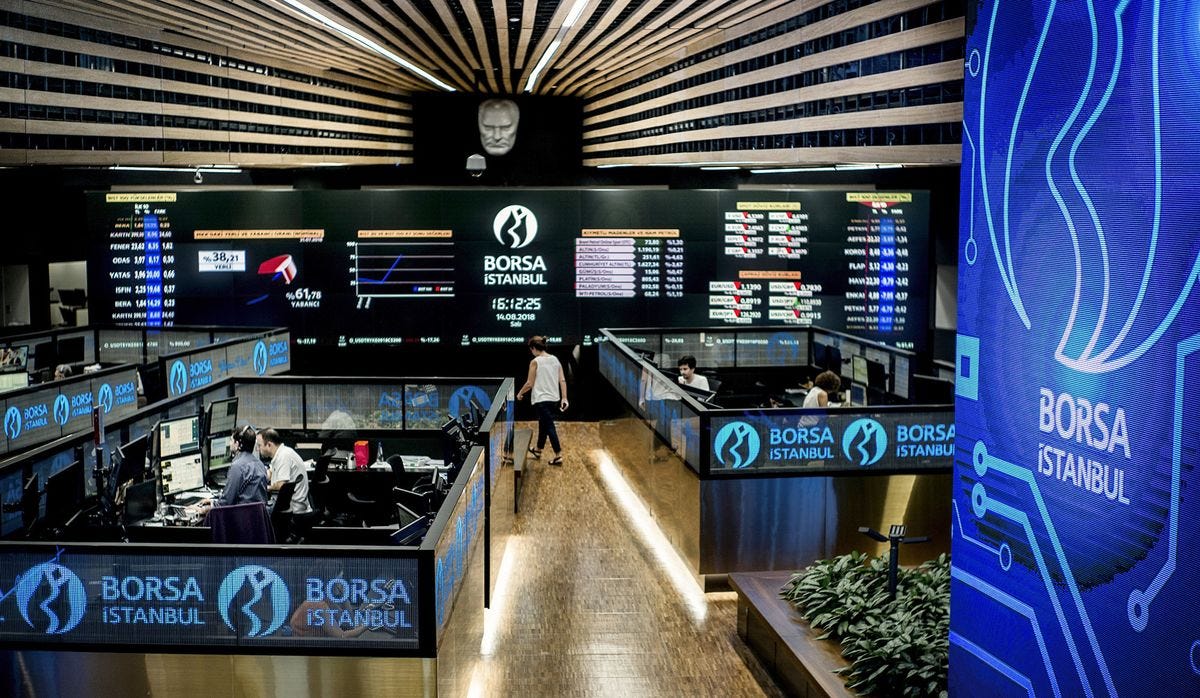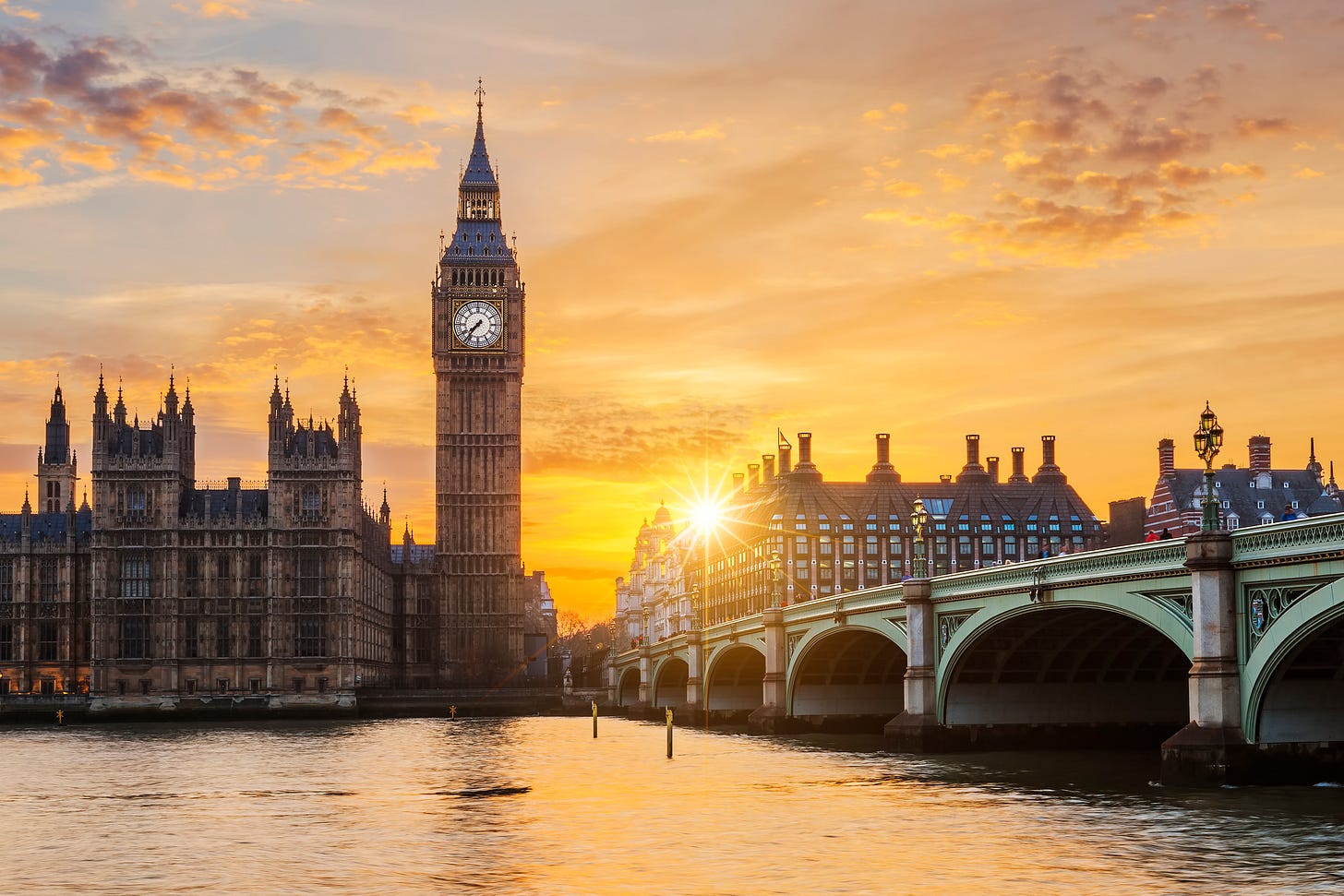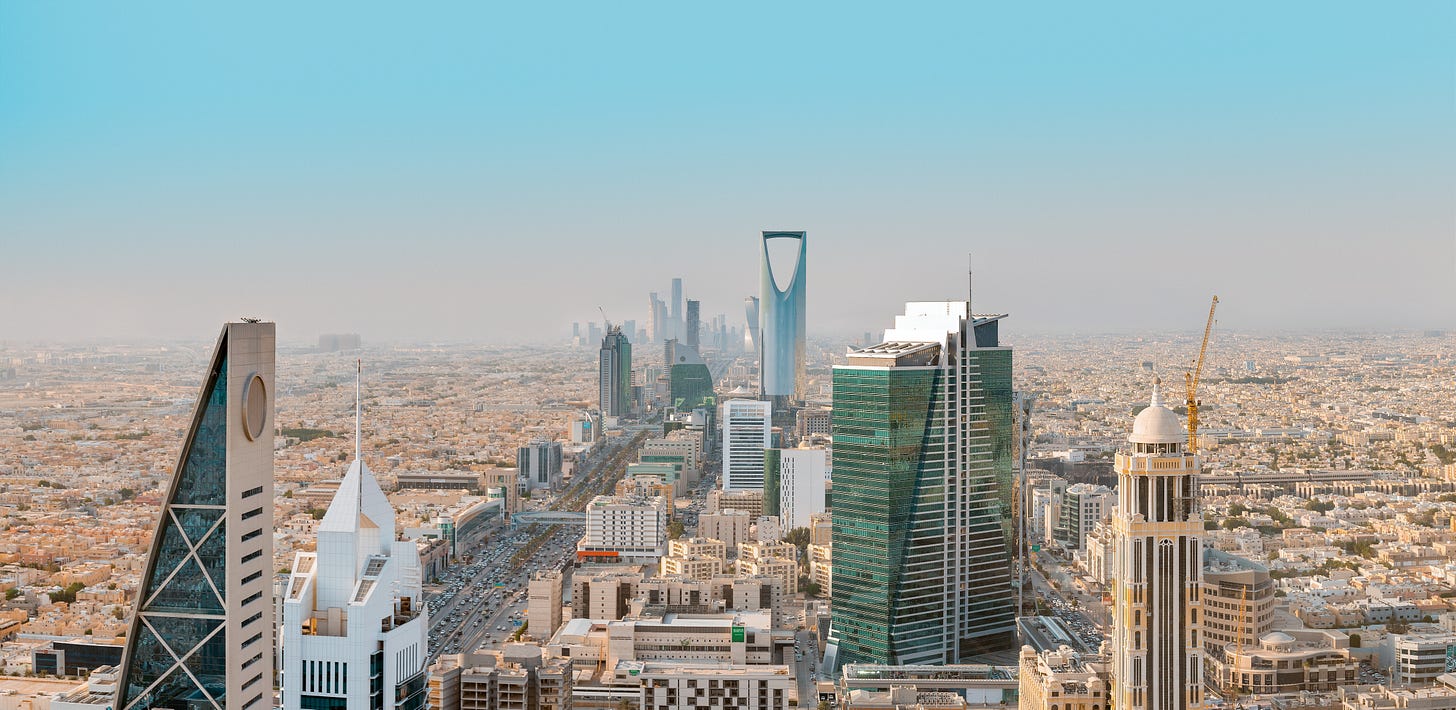Emerging Markets Daily - December 17
Turkey Halts Stock Trading, India's Big EdTech IPO Looms, Central Banks vs Inflation, South Africa Covid Highs, Saudi Needs Oil at $70-75 to Maintain Surplus
The Top 5 Stories Shaping Emerging Markets from Global Media - December 17
Turkey Halts Stock Trading as Currency Troubles Hit Markets
Financial Times
“Turkey’s main stock exchange halted trading on Friday after the country’s currency crisis, already stinging bonds, spread to equities. Borsa Istanbul announced a temporary so-called circuit breaker after its main Bist 100 index fell 5 per cent.”
“After trading resumed, the benchmark was more than 8 per cent lower. The selling came as the Turkish lira fell a further 7 per cent to a fresh all-time low of more than 17 to the US dollar, and a day after the central bank once again lowered interest rates despite an annual inflation rate of more than 20 per cent.”
“The lira has halved in value so far this year following a series of rate cuts, as President Recep Tayyip Erdogan — who rejects the economic orthodoxy that high interest rates rein in inflation — exerts increasingly close control over the central bank. ‘The central bank has totally lost control,’ said Timothy Ash of BlueBay Asset Management.”
India’s Most Valuable Education Tech Start-Up Eyes IPO With $48B Valuation
NDTV/Bloomberg
“The online education provider Byju's, India's most valuable startup, is in advanced discussions to go public through a merger with one of Churchill Capital's special-purpose acquisition companies, according to people familiar with the matter.”
“The startup held talks with several potential SPAC partners and is farthest along in working out an agreement with Michael Klein's Churchill Capital, said the people, asking not to be named discussing private matters. Churchill Capital VII raised more than $1.3 billion in an offering in February and trades on the New York Stock Exchange.”
“Under the preliminary terms discussed, Byju's would raise a total of about $4 billion and seek a valuation of about $48 billion, the people said. The startup was valued at $21 billion, according to market research firm CB Insights.”
“While an announcement could come as soon as January, the negotiations are not final. Byju's or Churchill could still opt out of such a deal, and Byju's could consider an IPO in India next year, the people said…”
“Byju's, formally called Think & Learn Pvt., has prominent global investors including Facebook founder Mark Zuckerberg's Chan-Zuckerberg Initiative, Naspers Ltd., Tiger Global Management and private equity giant Silver Lake Management.” NDTV.com reports.
Central Banks Around World Begin to Raise Rates to Tame Inflation
Wall Street Journal
“Central banks across swaths of the globe are continuing to raise interest rates in an effort to tame inflation, largely dismissing for now the threat to economic growth posed by the spread of the highly infectious Omicron variant.”
“A rate rise announced by Russia’s central bank Friday was its seventh this year and brought the increase in its key interest rate to four-and-a-quarter percentage points since March. That is a reminder of how quickly and aggressively many poorer countries have responded to the acceleration in consumer prices, taking steps that are only now being contemplated or enacted in large rich countries.”
“This is despite the new Covid-19 variant raising fresh questions about the pace of the global economic recovery. ‘Omicron presents a further sizable uncertainty,’ said Freya Beamish, an economist at TS Lombard. ‘We think the inflationary impact at this stage of supply-side adaptation is likely to be much less significant than in previous Covid waves. For now, central banks appear to be looking through the threat to growth.’”
“While a lengthening list of central banks have or are poised to raise interest rates, central bank meetings this week underscored big differences in the perceived threat that inflation poses when set against the need to support fragile economic recoveries. A number of central banks in Eastern Europe and Latin America raised their key interest rates, but their counterparts in southeast Asia left theirs unchanged.”
“That may change in 2022, since developing economies usually find it difficult to avoid following the Federal Reserve, which has signaled it will likely raise its key rate three times next year. Central banks that leave their policy rates unchanged when the Fed is tightening policy run the risk of big falls in their currencies, which stokes inflation by raising import prices.” Paul Hannon reports.
South Africa Covid Cases Hit New Record, Though Hospitalizations Muted
Bloomberg
“South Africa reported a record 26,976 daily coronavirus cases as the omicron variant takes hold. Still, hospitalizations and deaths, while rising, are a fraction of those seen in earlier infection waves.”
“The cases were recorded with 32.2% of Covid-19 tests analyzed over the past 24 hours coming back positive, the National Institute for Communicable Diseases said in a statement on Wednesday.”
“The number of people in the hospital with the disease has gradually risen to 7,339, with just 6.8% of those in intensive care units, and there were 1,887 excess deaths, a measure of mortality over a historical average, in the week ended Dec. 5.”
“That’s about a third of the peak number of hospital admissions in previous waves and an eighth of the record weekly excess deaths. There are ‘fewer hospitalizations and deaths, in comparison to previous waves,’ the NICD said. ‘Although the data are still being gathered, the evidence suggests that the current wave may be milder.’” Bloomberg reports.
Saudi Arabia Needs Oil At $70-75 to Maintain ‘22 Budget Surplus
Arab News
“Saudi Arabia’s planned 2022 budget surplus of SR90 billion ($24 billion) depends on oil prices staying at $70-$75 per barrel, according to Jadwa, a Saudi investment bank. Brent oil was trading at $73.01 per barrel at 3:53 pm Saudi time on Wednesday.”
“The Saudi Ministry of Finance announced this week it expects revenues valued at SR1.05 trillion in its baseline scenario for the 2022 fiscal year. This would lead to a surplus of SR90 billion in 2022, the first since 2013. Its size is set to be 2.5 percent of the gross domestic product.”
“However, the ministry did not provide exact figures for either oil prices or revenues.Ever since Aramco listed on the Saudi stock exchange, the ministry has not released exact figures for oil revenues and instead includes it within the wider category of ‘other revenues.’ The latter encompasses oil, investment income and confiscations among others.”
“Jadwa had expected a lower surplus at SR35 billion in a previous report while international organizations had projected deficits of varying amounts.” Arab News reports.
“Don't be satisfied with stories, how things have gone with others. Unfold your own myth.” - Rumi





